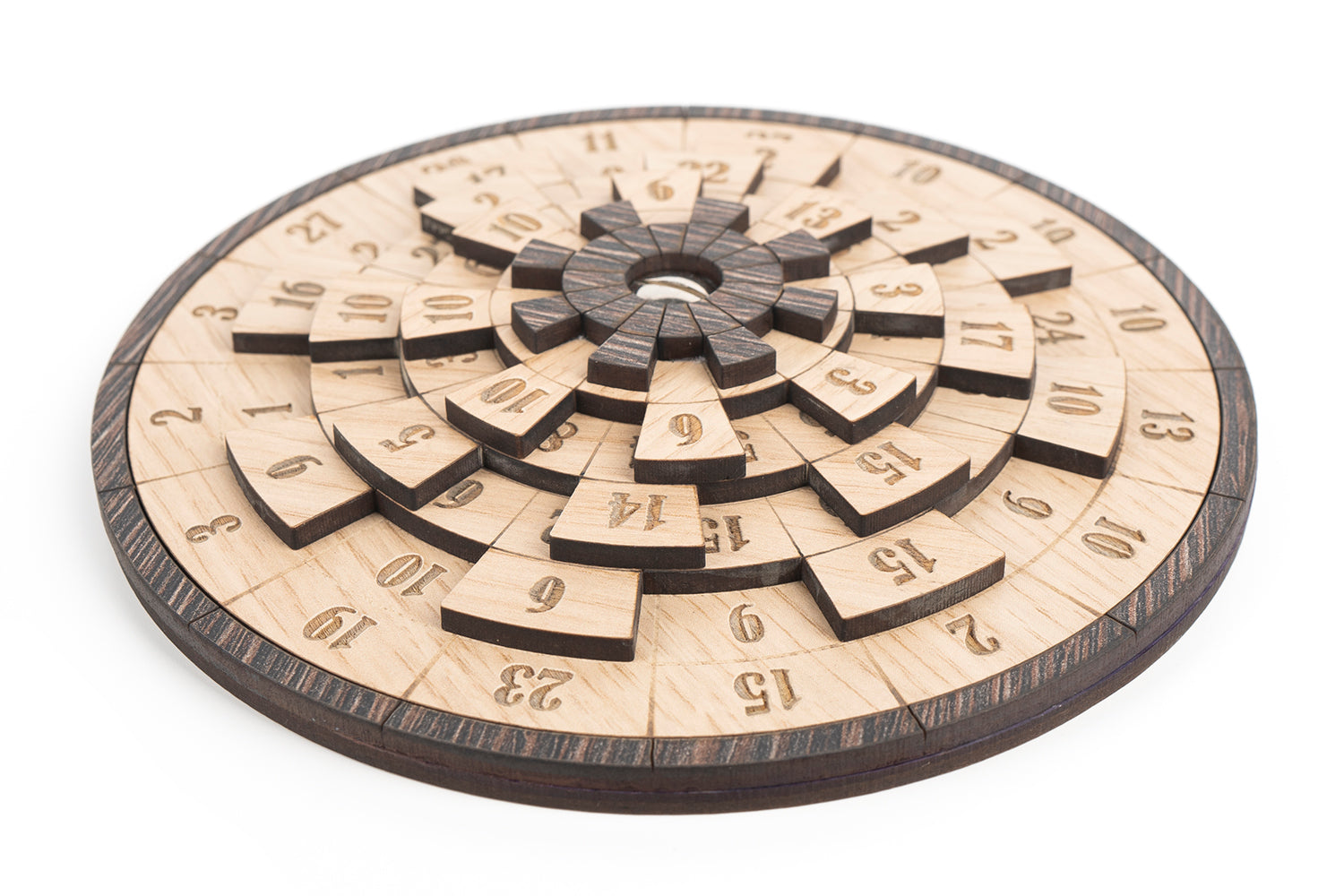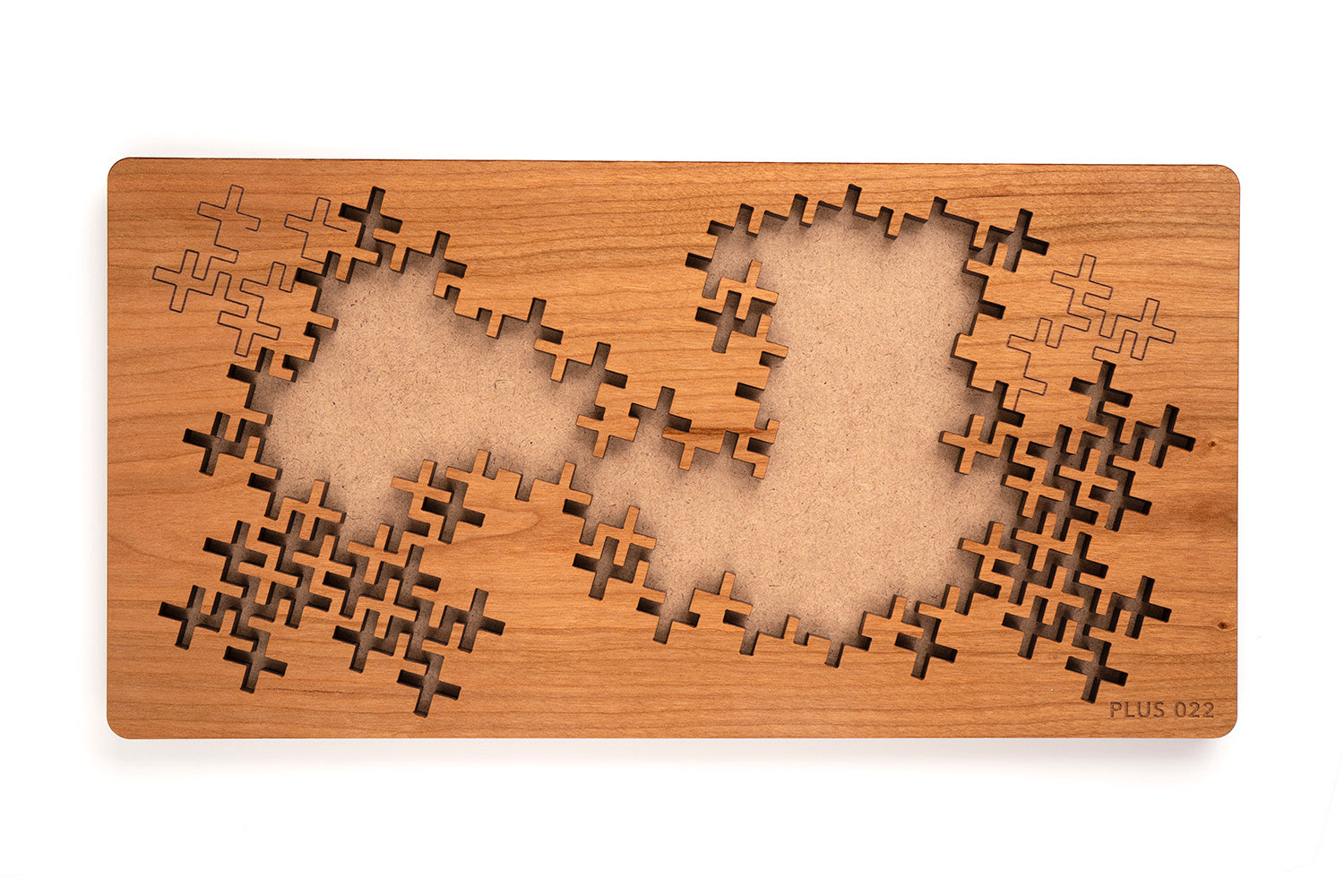Puzzles make you better at just about everything—how you think, how you approach challenges, and how you see the world. A great puzzle teaches your brain to slow down, pay attention, and look at things from a fresh perspective. And no, you don’t have to be a genius to love puzzles. You just need curiosity—and maybe a little bit of stubbornness. Whether you’re into elegant Japanese puzzle boxes, tricky mechanical locks, or pocket-sized brainteasers, we’ve got something that’ll stretch your brain and make it smile. When most people face a problem, they immediately start looking for the solution. That’s natural—we all want to fix things fast. But the smartest solvers? They take their time. They pause. They observe. They study the problem first.
Einstein once said: "If I had an hour to solve a problem, I’d spend 55 minutes thinking about the problem and 5 minutes thinking about solutions."
At Kubiya, we believe smart play leads to powerful thinking. That’s why we design and curate puzzles that challenge, surprise, and inspire—whether you’re cracking open your first brain teaser or already have an entire puzzle shelf at home. Solving puzzles sharpens your mind in more ways than you might expect. It’s not just about opening a secret compartment or cracking a clever lock— it’s brain training in disguise.
Did you know that adults who regularly engage with puzzles have better cognitive function and slower memory decline as they age? It's true! These brain-boosting tools are as fun as they are effective. Puzzles don't just make you smarter; they help you relax, connect with others, and discover new ways of thinking. Let's face it, puzzles are just toys with a challenge - and who says adults can't play with toys? Let's dive into the world of puzzles and discover the benefits, types, and strategies to make them a part of your life!
Why Are Puzzles Beneficial for Adults?
1. Boost Cognitive Function: Puzzles challenge the brain to think critically and creatively. They activate neural pathways responsible for problem-solving, memory, and spatial reasoning. For example, solving a Sudoku puzzle demands logical sequencing, while a jigsaw requires spatial awareness and visualization skills. Studies have found that regular engagement with puzzles can improve short-term memory and even slow the onset of dementia by maintaining mental sharpness.
2. Relieve Stress: Immersing yourself in a puzzle can be a meditative experience. When you’re focused on fitting pieces together or cracking a complex riddle, your brain shifts away from daily anxieties. This state of “flow”—complete absorption in an activity—has been shown to lower cortisol levels, the stress hormone, leaving you feeling refreshed and calm. It’s a break for your mind without the need for screens or noise.
3. Enhance Productivity: Puzzles foster patience and persistence, essential traits for tackling real-world challenges. Solving a tough crossword or completing a 500-piece jigsaw builds resilience and determination. The sense of accomplishment when you finish a puzzle can also boost motivation, encouraging you to tackle other tasks with confidence.
4. Build Social Connections: Collaborative puzzles like trivia games or escape room challenges foster teamwork and communication. Gathering friends or family for a puzzle night is not only entertaining but also strengthens relationships. Even online puzzle communities provide a platform for sharing tips, solving challenges, and celebrating achievements.
5. Improve Visual-Spatial Skills: Jigsaw puzzles, in particular, enhance visual-spatial reasoning. This skill is crucial for everyday tasks like driving, packing, or navigating. Working with intricate puzzle designs requires attention to detail and the ability to see how pieces fit within the bigger picture.
Types of Puzzles Adults Love
1. Crosswords: Perfect for wordsmiths, crosswords improve vocabulary and memory. They’re an excellent way to learn new words, reinforce spelling, and test general knowledge. For a modern twist, try themed crosswords tailored to your interests, from pop culture to science.
2. Jigsaw Puzzles: These timeless classics test spatial reasoning and attention to detail. Larger puzzles with intricate designs are particularly satisfying for adults seeking a deeper challenge. Puzzle enthusiasts can even explore 3D jigsaws or personalized puzzles for an extra layer of fun.
3. Logic Puzzles: Sudoku, riddles, and brainteasers require analytical thinking and problem-solving skills. Logic puzzles are ideal for those who enjoy structured challenges and step-by-step reasoning. Books and apps dedicated to logic puzzles offer endless opportunities to sharpen your mind.
4. Digital Puzzle Games: In the digital age, apps like Lumosity, Monument Valley, and The Room provide puzzles on the go. These games combine stunning visuals with engaging tasks that stimulate cognitive functions. Many apps offer daily challenges to keep your mind engaged and growing.
5. Escape Room Games: Escape room puzzles, available in physical locations and virtual formats, challenge players to solve a series of interconnected puzzles under time constraints. They’re a thrilling way to test teamwork and critical thinking.
How to Incorporate Puzzles into Your Routine
1. Start Small: Dedicate 10-15 minutes a day to puzzles. Begin with something simple, like a mini crossword or an easy Sudoku. Gradually tackle more complex puzzles as your confidence grows.
2. Make it Social: Invite friends or family to join you. Collaborative puzzles—whether it’s trivia, jigsaw sessions, or online escape rooms—are not only fun but also foster deeper connections.
3. Mix It Up: Avoid monotony by exploring different types of puzzles. Rotate between crosswords, jigsaws, and digital games to give your brain a balanced workout. This variety keeps your interest alive and ensures no single skill is overused.
4. Use Puzzles for Breaks: Swap unproductive scrolling on your phone for a quick puzzle session. Not only does it recharge your mind, but it also provides a healthy escape from screen overload.
5. Set Challenges: Create personal goals or compete with friends. For example, aim to complete a challenging crossword in under 30 minutes or finish a 1,000-piece jigsaw within a week. Gamifying the process adds excitement and keeps you engaged.
Adults love to play
Puzzles are more than just a way to pass time; they’re a gateway to a sharper, more focused mind. At their essence, puzzles are toys with challenges—delightful tools for both fun and growth. Adults love to play too, and puzzles offer a perfect blend of entertainment and brain exercise. From boosting cognitive abilities to relieving stress, puzzles offer an array of benefits tailored to adult needs.
Whether you’re seeking a mental challenge, a calming activity, or a way to connect with others, there’s a puzzle out there for you. So if you’re ready to stretch your brain and smile while doing it—this is your moment! Pick up a beautiful wooden puzzle, dive into that 1,000-piece masterpiece, or try to solve a very complex 3D mechanical puzzle. With each solved puzzle, you’re not just filling in blanks or matching pieces—you’re investing in a healthier, happier brain. Your mind will thank you for it.



